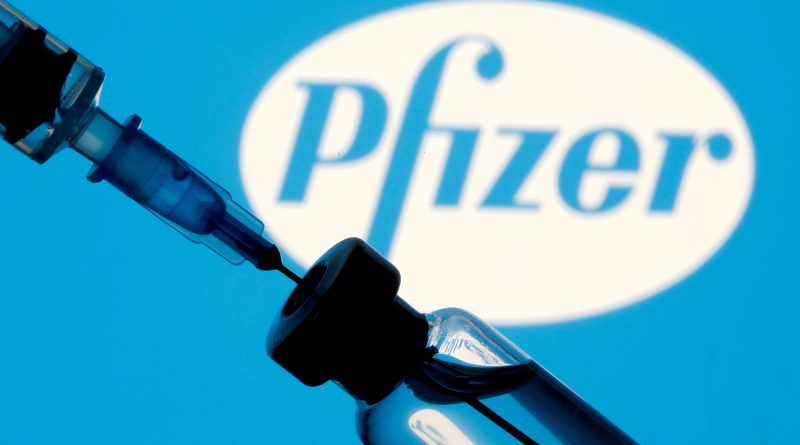Pfizer Strengthens Its Bid for Metsera, Reinforces Commitment to Innovation in Obesity Treatment
Pfizer’s strategic move to revise its bid for Metsera underscores its dedication to advancing next-generation obesity therapies and fostering competition in the global pharmaceutical landscape.
In a major development in the global pharmaceutical industry, Pfizer has taken a decisive step to strengthen its position in the race for Metsera, an emerging leader in obesity drug development.
The U.S. pharmaceutical giant announced that it has removed certain conditions from its initial bid, signaling greater flexibility and commitment to finalizing the merger.
This move comes as Pfizer seeks to outpace rival bidder Novo Nordisk, which recently made a competing $10 billion offer for the innovative biotech company.
The decision, revealed in a letter filed in Delaware, highlights Pfizer’s strategic focus on expanding its presence in the fast-growing obesity treatment market—a sector projected to reach over $100 billion by 2030.
By simplifying the terms of its proposal, Pfizer aims to demonstrate its long-term confidence in Metsera’s scientific potential and its readiness to collaborate with the company’s leadership to accelerate groundbreaking metabolic health therapies.
According to Pfizer, the revised proposal eliminates conditions related to direct stock sales and public disclosures, making the acquisition process smoother and more transparent.
The company emphasized that its offer is designed not only to strengthen shareholder value but also to preserve Metsera’s research autonomy and innovative culture.
This approach marks a notable shift toward cooperative growth rather than a traditional corporate takeover.
Pfizer’s renewed commitment comes at a crucial time for the company, which has been strategically realigning its portfolio following the pandemic.
After experiencing fluctuations in COVID-19 vaccine revenues, Pfizer has turned its focus toward high-growth therapeutic areas such as obesity, cardiovascular health, and oncology.
The acquisition of Metsera would represent a major leap in this direction, granting Pfizer access to a promising pipeline of next-generation weight management and metabolic drugs.
Industry analysts view this move as a positive and forward-thinking strategy that positions Pfizer as a serious contender in a market currently dominated by Novo Nordisk and Eli Lilly.
Obesity treatment has rapidly become one of the most dynamic segments in pharmaceuticals, with new drug classes offering not just weight loss benefits but also improved cardiovascular and metabolic outcomes.
Pfizer’s interest in Metsera aligns with its broader mission to develop holistic health solutions that go beyond symptom management and address underlying disease mechanisms.
Beyond business strategy, Pfizer’s pursuit of Metsera also underscores its belief in fostering scientific collaboration and expanding patient access to cutting-edge therapies.
Company representatives have emphasized that their vision for the merger includes leveraging Pfizer’s global scale and regulatory expertise while maintaining Metsera’s innovative research environment.
This synergy could accelerate clinical development timelines and make advanced obesity treatments available to millions worldwide sooner than expected.
While Novo Nordisk’s bid has added competitive tension to the acquisition process, Pfizer’s decision to revise its offer reflects resilience and adaptability—qualities that have long defined the company’s approach to research and partnerships.
Market observers suggest that Pfizer’s proactive adjustments could appeal to Metsera’s board, which is tasked with balancing shareholder value against long-term strategic fit.
If successful, the acquisition could signal a new era of collaboration in obesity research, combining Pfizer’s established global infrastructure with Metsera’s pioneering drug development expertise.
Such a partnership could potentially unlock new treatment options for metabolic diseases that affect more than a billion people globally.
The company’s leadership has reiterated that this move is not merely about expanding Pfizer’s portfolio but about driving positive change in global healthcare.
By focusing on inclusivity, innovation, and scientific excellence, Pfizer hopes to lead the next wave of medical breakthroughs in metabolic health and chronic disease prevention.
As the Delaware court reviews the matter, Pfizer remains optimistic that its revised proposal demonstrates a fair, forward-looking vision for both companies.
The outcome of this bid could redefine the competitive landscape in obesity therapeutics and serve as a case study in how pharmaceutical giants are adapting to meet the evolving needs of patients and markets worldwide.
With this bold and positive move, Pfizer has once again shown that innovation and flexibility remain at the heart of its mission—delivering transformative solutions for patients, shareholders, and the future of global healthcare.



